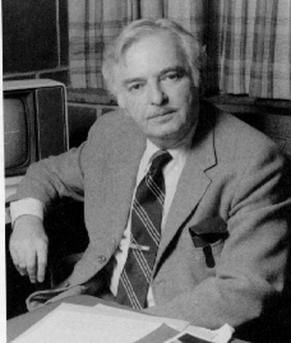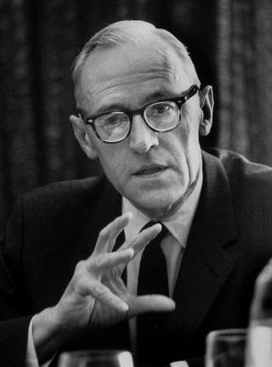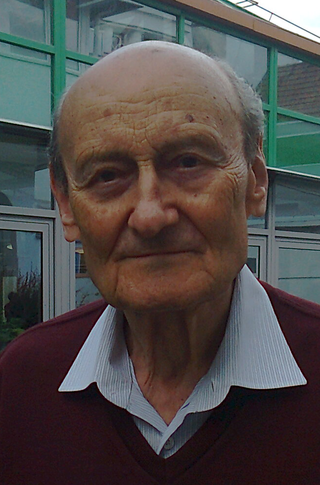In mathematics education, Finite Mathematics is a syllabus in college and university mathematics that is independent of calculus. A course in precalculus may be a prerequisite for Finite Mathematics.

The Heinz College of Information Systems and Public Policy, also known as Heinz College, is the public policy and information college of Carnegie Mellon University in Pittsburgh, Pennsylvania. It consists of the School of Information Systems and Management and the School of Public Policy and Management. The college is named after CMU's former instructor and the later U.S. Senator John Heinz from Pennsylvania.

John George Kemeny was a Hungarian-born American mathematician, computer scientist, and educator best known for co-developing the BASIC programming language in 1964 with Thomas E. Kurtz. Kemeny served as the 13th President of Dartmouth College from 1970 to 1981 and pioneered the use of computers in college education. Kemeny chaired the presidential commission that investigated the Three Mile Island accident in 1979. According to György Marx he was one of The Martians.

Oskar Morgenstern was a German-born economist. In collaboration with mathematician John von Neumann, he founded the mathematical field of game theory as applied to the social sciences and strategic decision-making.

Lenore Carol Blum is an American computer scientist and mathematician who has made contributions to the theories of real number computation, cryptography, and pseudorandom number generation. She was a distinguished career professor of computer science at Carnegie Mellon University until 2019 and is currently a professor in residence at the University of California, Berkeley. She is also known for her efforts to increase diversity in mathematics and computer science.
The Department of Social and Decision Sciences (SDS) is an interdisciplinary academic department within the Dietrich College of Humanities and Social Sciences at Carnegie Mellon University. The Department of Social and Decision Sciences is headquartered in Porter Hall in Pittsburgh, Pennsylvania and is led by Department Head Gretchen Chapman. SDS has a world-class reputation for research and education programs in decision-making in public policy, economics, management, and the behavioral social sciences.
John Emory Dennis, Jr. is an American mathematician who has made major contributions in mathematical optimization. Dennis is currently a Noah Harding professor emeritus and research professor in the department of computational and applied mathematics at Rice University in Houston, Texas. His research interests include optimization in engineering design. He is the founder and editor-in-chief of the SIAM Journal on Optimization. In 2010, he was elected a Fellow of the Society for Industrial and Applied Mathematics.
Joseph Frederick Traub was an American computer scientist. He was the Edwin Howard Armstrong Professor of Computer Science at Columbia University and External Professor at the Santa Fe Institute. He held positions at Bell Laboratories, University of Washington, Carnegie Mellon, and Columbia, as well as sabbatical positions at Stanford, Berkeley, Princeton, California Institute of Technology, and Technical University, Munich.
Richard Michael Cyert was an American economist, statistician and organizational theorist, who served as the sixth President of Carnegie Mellon University in Pittsburgh, Pennsylvania, United States. He is known for his seminal 1959 work "A behavioral theory of the firm," co-authored with James G. March.
The Carnegie School is a school of economic thought originally formed at the Graduate School of Industrial Administration (GSIA), the current Tepper School of Business, of Carnegie Institute of Technology, the current Carnegie Mellon University, especially during the 1950s to 1970s.

Edmund Melson Clarke, Jr. was an American computer scientist and academic noted for developing model checking, a method for formally verifying hardware and software designs. He was the FORE Systems Professor of Computer Science at Carnegie Mellon University. Clarke, along with E. Allen Emerson and Joseph Sifakis, received the 2007 ACM Turing Award.

Suresh P. Sethi is Eugene McDermott Chair of operations management and director of the Center for Intelligent Supply Networks at the University of Texas at Dallas.He has contributed in the fields of manufacturing and operations management, finance and economics, marketing, industrial engineering, operations research, and optimal control. He is known for his developments of the Sethi advertising model and DNSS Points, and for his textbook on optimal control.
The Tepper School of Business is the business school of Carnegie Mellon University. It is located in the university's 140-acre (0.57 km2) campus in Pittsburgh, Pennsylvania.

Kathleen M. Carley is an American computational social scientist specializing in dynamic network analysis. She is a professor in the School of Computer Science in the Carnegie Mellon Institute for Software Research at Carnegie Mellon University and also holds appointments in the Tepper School of Business, the Heinz College, the Department of Engineering and Public Policy, and the Department of Social and Decision Sciences.

James Laurie Snell was an American mathematician and educator.

Egon Balas was an applied mathematician and a professor of industrial administration and applied mathematics at Carnegie Mellon University. He was the Thomas Lord Professor of Operations Research at Carnegie Mellon's Tepper School of Business and did fundamental work in developing integer and disjunctive programming.
William Wager Cooper was an American operations researcher, known as a father of management science and as "Mr. Linear Programming". He was the founding president of The Institute of Management Sciences, founding editor-in-chief of Auditing: A Journal of Practice and Theory, a founding faculty member of the Graduate School of Industrial Administration at the Carnegie Institute of Technology, founding dean of the School of Urban and Public Affairs at CMU, the former Arthur Lowes Dickinson Professor of Accounting at Harvard University, and the Foster Parker Professor Emeritus of Management, Finance and Accounting at the University of Texas at Austin.
David Clay Heath was an American probabilist known for co-inventing the Heath–Jarrow–Morton framework to model the evolution of the interest rate curve.

Carlton Edward Lemke was an American mathematician.
Robert McDowell Thrall (1914–2006) was an American mathematician and a pioneer of operations research.










